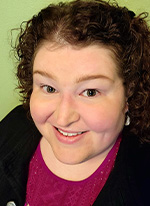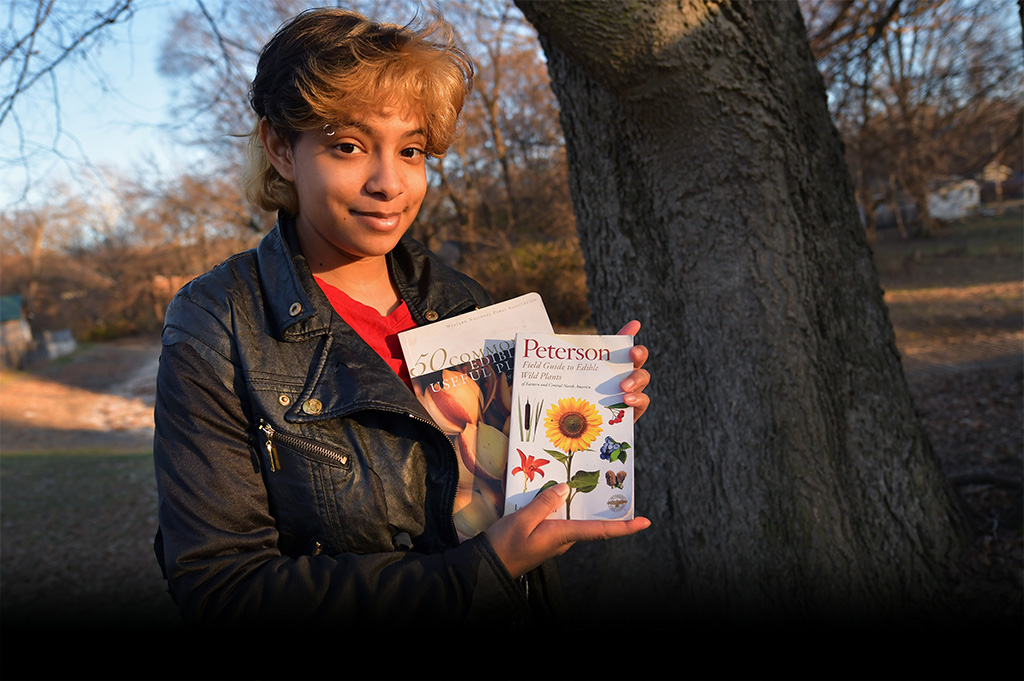Americans are returning to nature
for medicinal cures.
“It sounds magical. The stuff of fairy tales,” says Samantha Losher, owner and operator of Urban Hippie Store.
“But it’s actually quite practical. Plants can clean your lungs, increase your circulation, stop your panic attacks, treat your eczema, and put you to sleep. It just makes sense to me. It’s natural, it’s affordable, and it works.”
The 43-year-old Bloomington resident is talking about the growing number of people rediscovering herbs as medicine.
Herbalism, the study of herbs, has experienced a surge in the United States for the past three decades. Retailers sold over $11.2 billion in herbal supplements in 2020, according to the American Botanical Council. Nearly one-third of Americans report using herbs and supplements for health benefits or disease prevention.
Researchers are conflicted about the reason for this increase. They credit the growth in chronic health conditions, higher education rates, an emergent spiritual movement, even a renewed interest in environmentalism.
‘The earth has a cure for almost any element out there.’
Certified herbalist and Pekin resident Zypher Matthews thinks money is the motivating factor for many.
Medical care can be very expensive, “and people are really trying to get it back into their own hands,” the 22-year-old explained. “What got me interested in herbalism is how the earth has a cure for almost any element out there. A lot of them can be found in your backyard.”
Losher agrees, adding, “I believe we are becoming more mindful about what we put in our bodies. For that reason, we are turning to more natural and chemical-free products.”
Losher’s Urban Hippie Store sells teas and tinctures — concentrated liquids made by soaking herb mixtures in alcohol or vinegar — online and through farmers markets and craft fairs. Her most popular products help with sleep, anxiety and nicotine addiction. The business grew out of a need to heal her family.
“I wanted my husband to be able to treat a migraine without having to sleep for three days or be ill from the medicine,” she said. “I wanted my teenage daughter to be able to take something to sleep that wasn’t addictive but was effective. I wanted my mom to have the best product to treat the skin rashes that were a side effect of her chemo. I wanted my daughter with colitis to just be able to eat.”
Do your research.
There’s no shortage of information on herbalism. Losher points beginners toward books and social media content, while Matthews endorses the American Botanical Council. Its website hosts a clinical guide to herbs, ways to identify medicinal plants, and a wide variety of articles about botanicals.
“Take nettles, for instance,” Matthews said. “They can be steamed and made into a nice tea that’s not too bitter and great with honey. They are good for your sinuses, and the steamed vegetables make good collared greens, so it’s a healthy side dish for your meal.”
Matthews plans to put her herbalism certification to future use — she isn’t currently selling what she makes — but for now she’s happy just being an advocate. For example, elderberry syrup is her general recommendation for boosting the immune system, and mullen is her remedy for congestion.
“Mullen cleans out your respiratory system and your lungs. It clears out all that mucus if you’ve been smoking. So that’s a really good tea to drink for a monthly or even daily cleanse.”
Losher prefers working with lavender, chamomile and ashwagandha for their versatility and calming effects. She says beginning herbalists should do their research and follow recipes at first.
“Following an already proven recipe helps you learn about the herbal properties. It lets you know if there are side effects or warnings you should be aware of and what the right proportions should be.”
“A very easy way to start off is mixing your herbs and your teas,” Matthews said. “It’s really fun to experiment and find your favorite combinations. It’s pretty much limitless on what you do.”
Get professional medical advice.
As helpful as herbs can be, both herbalists warn that anyone interested in herbal medicine should talk to their doctor first. Like anything, too much of a good thing can be bad.
The Journal of the European Association for Predictive, Preventive and Personalized Medicine, for example, has reported that people on blood thinners should avoid turmeric, often recommended for its anti-inflammatory properties. Motherwort can be effective for anxiety or menstrual cramps but should not be used by pregnant women or those taking sedatives.
“Herbs are similar to traditional medicines in this matter,” Losher said. “You need to consider allergies or if the herbs are safe for children or pregnant or nursing people. Are they safe to take long term? Will they interact with any current medications or medical conditions? I always recommend consulting a doctor if there are any concerns about the safety of the herbs you want to use or how you want to use them.”
Those ready to work with medicinal herbs can find a wide selection in grocery stores or online, often in the tea or health food section. Matthews suggests looking for items at farmers markets where you can talk to the people who grow them. Losher says that organics are the way to go to avoid pesticides.
Another option is to grow your own herbs in a garden or a window box. Anyone planning to forage for wild herbs should take a class and go with a knowledgeable group for safety. Poisonous herbs can be mistaken for helpful ones in the wild.
Losher’s warning about getting started? “It’s addictive, and you might soon have a cabinet full of mason jars filled with herbs!”
For more information about Urban Hippie Store, visit urbanhippiestore.com. You can find the American Botanical Council at herbalgram.org.





